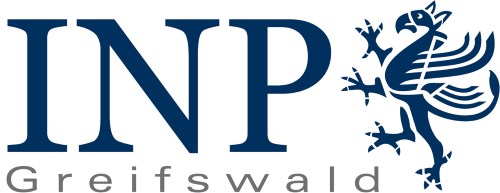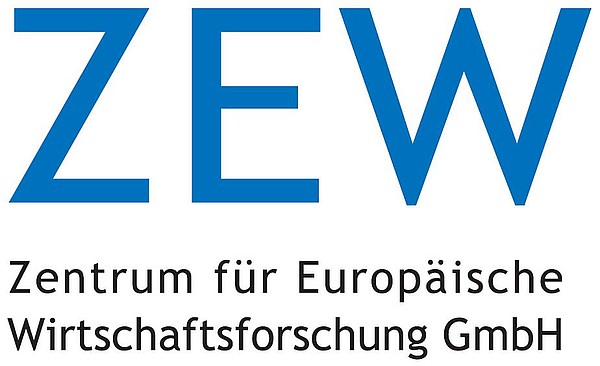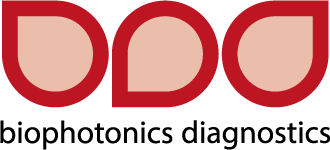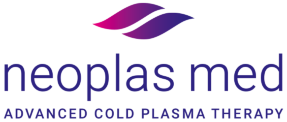PARTNERS IN LEIBNIZ HEALTH TECHNOLOGIES
One major structural feature of the research alliance Leibniz Health Technologies is the targeted cross-disciplinary collaboration of institutes from different sections of the Leibniz Association. The alliance profits from the proven expertise and excellence of its partners.
The partners have the opportunity to provide the context of a stringent research profile for their own research activities in this area and optimally analyze the research results while taking strategic objectives into consideration. Via institutionally embedded interfaces within the research alliance, a fast translation of the results can be ensured. At the same time, accompanying research can help recognize potential dangers and conflicts early to carry out the required corrections in the research agenda.
Partners
Leibniz Institute of Photonic Technology
The Leibniz Institute of Photonic Technology (IPHT) focuses on the research of highly-sensitive and highly-selective optical system solutions regarding issues in the areas of medicine and the life and environmental sciences. The research activities are guided by the motto of “Photonics for Life”; however, the internal research focus biophotonics links all of the scientific activities at IPHT.
Together with the internal research focuses fiber optics and photonic detection, new photonic methods are being transferred into application-oriented, innovative systems according to the motto “From Ideas to Instruments.” IPHT relies on its unique technological position in the areas of micro/nanotechnology, fiber technology, and system technology. Due to its method and process research, IPHT contributes significantly to advancements in socio-politically relevant fields.
Ferdinand Braun Institute, Leibniz Institute for High-Frequency Technology (FBH)
Research Center Borstel – Leibniz Lung Center (FZ Borstel)
Leibniz Institute for Analytical Sciences e.V. (ISAS)
Leibniz Institute for Innovative Microelectronics (IHP)
Leibniz Institute for Interactive Materials (DWI)

Leibniz Institute for Natural Product Research and Infection Biology – Hans Knöll Institute (HKI)

Leibniz Institute for New Materials (INM)
Leibniz-Institut für Oberflächenmodifizierung
Das Leibniz-Institut für Oberflächenmodifizierung (IOM) betreibt anwendungsorientierte Grundlagenforschung auf dem Gebiet der nichtthermischen Stoffwandlung sowie der apparativen und verfahrenstechnischen Entwicklungen von Ionen-, Elektronen-, Photonen- und Plasmawerkzeugen mit dem Ziel der Oberflächenmodifizierung (wie Glätten, Strukturieren, Beschichten, Funktionalisieren) und der technologischen Umsetzung von Ergebnissen in die Industrie und Gesellschaft.
Das IOM ist damit Leibniz-Kompetenzzentrum für das Design, die Herstellung und Modifizierung von innovativen Oberflächen und Materialien, die in gesellschaftlich relevanten Zukunftsfeldern Anwendung finden. Unter Verfolgung der Innovationskette von der Idee zur Anwendung versteht sich das IOM dabei als ganzheitlicher strategischer Partner für Forschung und Industrie.
Der wissenschaftliche Erkenntnisgewinn am IOM dient dem öffentlichen Interesse und Nutzen der Gesellschaft in zukunftsweisenden Anwendungsfeldern wie Optik, Halbleiterindustrie, Energiewirtschaft, Biomedizin und Wasserwirtschaft.
Leibniz Institute of Plasma Science and Technology (INP)

Leibniz Institute for Polymer Research Dresden (IPF)
Weierstrass Institute for Applied Analysis and Stochastics (WIAS)
ZEW – Leibniz-Zentrum für Europäische Wirtschaftsforschung

Das ZEW – Leibniz-Zentrum für Europäische Wirtschaftsforschung in Mannheim gehört zu den führenden deutschen Wirtschaftsforschungsinstituten und ist Mitglied der Leibniz-Gemeinschaft. Die Wissenschaftlerinnen und Wissenschaftler am ZEW arbeiten auf dem Gebiet der anwendungsbezogenen empirischen Forschung. Zentrale Ziele am ZEW sind politikrelevante Forschung und eine wissenschaftlich fundierte Politikberatung.
Die ZEW-Forschungsgruppe „Gesundheitsmärkte und Gesundheitspolitik“ widmet sich der Analyse von Gesundheitsmärkten und der Evaluation von gesundheitspolitischen Maßnahmen. Das Ziel ist es, Erkenntnisse darüber zu gewinnen, wie die Gesundheitsversorgung besser gestaltet werden kann. Diese Erkenntnisse basieren auf empirischen Studien. Der Schwerpunkt der Arbeit besteht in der Analyse von Routine-, Befragungs- und Experimentaldaten zum Verhalten von Gesundheitsanbietern sowie Patientinnen und Patienten. Ein zentrales Augenmerk liegt hierbei auf der Identifikation kausaler Effekte von Politikinstrumenten unter Einsatz moderner ökonometrischer Methoden.
Associated partners
Leibniz Institute for Astrophysics Potsdam
The key topics of the Leibniz Institute for Astrophysics Potsdam (AIP) are cosmic magnetic fields and extragalactic astrophysics. A considerable part of the institute's efforts aim at the development of research technology in the fields of spectroscopy, robotic telescopes, and e-science. The AIP is the successor of the Berlin Observatory founded in 1700 and of the Astrophysical Observatory of Potsdam founded in 1874. The latter was the world's first observatory to emphasize explicitly the research area of astrophysics. Since 1992 the AIP is a member of the Leibniz Association.
Leibniz Institute for Neurobiology

Leibniz Research Centre for Working Environment and Human Factors
The Leibniz Research Centre for Working Environment and Human Factors (IfADo) focuses on the research field of toxicology, for which a comprehensive analysis and quantification of tissue changes is required. IfADo optimizes photonic imaging methods to make these technologies utilizable for routine clinical/medical applications. From this research, methods based on multi-photon microscopy have already been developed that make the quantification of liver and tumor tissue possible.
biophotonics diagnostics GmbH

The company draws important inspiration for the further development of the technology from the academic expertise of its academic partners. In particular, Biophotonics Diagnostics benefits from the good connections to Jena research networks such as the InfectoGnostics research campus and the business strategy know-how of the partner company mibiC.
neoplas med GmbH

Photonscore GmbH

Die Photonscoreaus Magdeburg ist eine Ausgründung des Leibniz-Instituts für Neurobiologie (ebenfalls Partner in Leibniz Gesundsheitstechnolgien). Das Startup entwickelt die bildgebende Methoden auf Basis der Einzelphotonen-Zählung. Mit der von Photonscore entwickelten LINCam kann so nicht nur die Ankunftszeit einzelner Photonen, sondern auch ihre Position ermittelt werden. In Kombination mit Mikroskopietechnologien werden mit diesem Verfahren leistungsfähige Fluoreszenz-Lebensdauer-Imaging-Systeme (u.a. für medizinische Anwendungen) entwickelt.